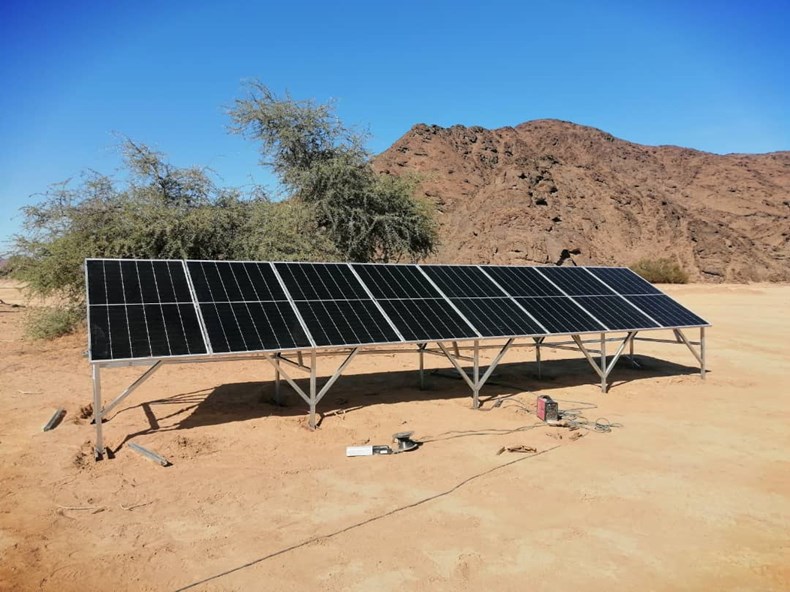Wilderness Safaris Namibia Further Reduces Carbon Footprint

As Africa’s leading conservation and hospitality company, Wilderness Safaris has a long-standing and profound commitment to implementing sustainable energy solutions in its camps across the continent – with the immediate aim of reducing dependence on fossil fuels and the ultimate goal of carbon neutrality. Further to this vision, Wilderness Safaris Namibia recently installed solar-powered water pumps at its Hoanib Skeleton Coast and Doro Nawas camps in the far north-west of the country.
Historically powered by diesel generators, the camps were using between 6 400 and 7 500 litres of fuel respectively every year, just to pump water.
In a country that averages over 300 cloudless days each year, the use of solar energy to provide a clean, emission-free, and renewable energy source is a natural choice – as unlike fossil fuels such as coal and natural gas, solar energy releases no harmful pollutants or greenhouse gas emissions like carbon dioxide into the air or water supply.
With the introduction of solar energy, it is estimated the two camps will save approximately 13 000 litres of fuel per year. Considering this equates to 30.2 tonnes of CO2, this will make a substantial difference to offsetting the camps’ carbon footprint.
“As a Group, we are constantly looking at ways to reduce our reliance on fossil fuels, and ensure we mitigate any direct – and indirect – impacts our operations may have on the environment. Switching to solar is a great way of achieving this, especially in the vastness of Namibia, where the logistics of transporting fuel have a substantial impact”, noted Warren Ozorio, Wilderness Group Environmental Co-ordinator.
In addition to the direct saving of fuel, the two camps will also save significantly on man hours and vehicle movement, collecting fuel and starting, refuelling, and stopping generators, which were an integral part of the water supply to these camps. This will free up staff to spend more time on other important tasks.
The camps’ systems were specifically designed by Cedar Collar, and the financing was organised through Wilderness Safaris Namibia. Going forward, the camps have further pledged to introduce solar energy to their surrounding communities.
“Strategically reviewing and identifying where improvements and efficiencies are possible in the operations, and for the surrounding communities, is essential for our business to manage and improve the sustainability, not only of our camps, but of our neighbours. It is essential we understand and review our operations on a regular basis using the latest technology to measure our impact against alternative options. This project will make a significant reduction of our carbon footprint and have an ongoing positive effect on the environment,” concluded Johan Fourie, Wilderness Safaris Namibia – Land and Natural Resources Manager.
